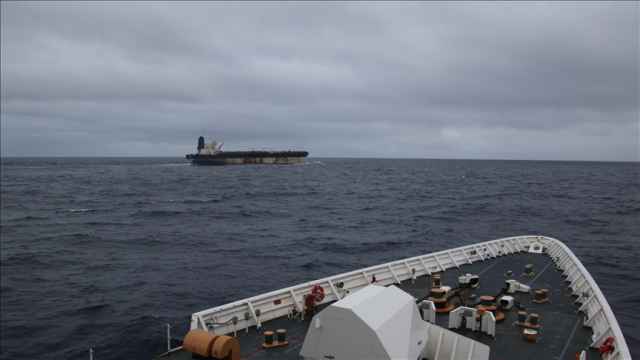The State Duma on Friday approved new legislation that toughens punishment for terrorism and requires terrorists' relatives to pay for the damages caused in attacks.
The move comes as Russia is preparing to host the Winter Olympics in Sochi in February amid concerns about security threats posed by an Islamist extremist insurgency that has raged across the North Caucasus region.
The bill, quickly passed by the State Duma in a unanimous vote, is expected to see a similarly swift approval in the upper house and be signed into law by President Vladimir Putin.
The document says training for terrorist activities, something which is not spelled out in current law, is punishable by up to 10 years in prison. At the same time, it envisages that those involved in such training would be absolved of any punishment if they report it to the authorities.
For the first time, the new bill makes relatives of a terrorist responsible for paying damages resulting from an attack.
"We think that it is a very important form of preventive measures and action against terror, because the terrorist would know that it would not be just him held responsible, including financial responsibility, but his relatives too," said Nikolai Kovalyov, a lawmaker and former chief of the Federal Security Service.
Tanya Lokshina, Russia program director at Human Rights Watch, criticized the new legislation, saying that making terrorists' relatives liable for damages amounts to the introduction of collective responsibility. "International law prohibits collective responsibility," Lokshina said of the proposed measure.
The bill also made it easier for law enforcement agencies to prosecute suspected terrorists. The current law requires authorities to turn to Russia's high court to declare a group of militants a terrorist organization, while the new law leaves the decision for local courts where suspects are on trial.
It also introduces a punishment of up to six years for those participating in a militant group abroad.
The measure appears to be a response to Russian nationals fighting alongside rebels in Syria, a group that Russian officials are concerned may launch attacks at home when they return.
Security experts have said the insurgency that has spread across the North Caucasus after two separatists wars in Chechnya poses a potential threat to Putin's pet project, the 2014 Winter Olympics in Sochi, even though Russia has pledged to make the games "the safest Olympics in history."
Last summer, a top Chechen rebel leader called on militants to disrupt the Sochi Games, which he described as "satanic dances on the bones of our ancestors."
Raising fears of a new wave of terror before the games, a female suicide bomber blew herself up on a city bus in the southern city of Volgograd last Monday, killing six people and injuring about 30 others. The suspected bomber, who investigators say was living in Moscow at the time of the attack, was a native of the republic of Dagestan, a Caspian Sea region that has become the epicenter of the Islamist extremist insurgency.
A Message from The Moscow Times:
Dear readers,
We are facing unprecedented challenges. Russia's Prosecutor General's Office has designated The Moscow Times as an "undesirable" organization, criminalizing our work and putting our staff at risk of prosecution. This follows our earlier unjust labeling as a "foreign agent."
These actions are direct attempts to silence independent journalism in Russia. The authorities claim our work "discredits the decisions of the Russian leadership." We see things differently: we strive to provide accurate, unbiased reporting on Russia.
We, the journalists of The Moscow Times, refuse to be silenced. But to continue our work, we need your help.
Your support, no matter how small, makes a world of difference. If you can, please support us monthly starting from just $2. It's quick to set up, and every contribution makes a significant impact.
By supporting The Moscow Times, you're defending open, independent journalism in the face of repression. Thank you for standing with us.
Remind me later.





